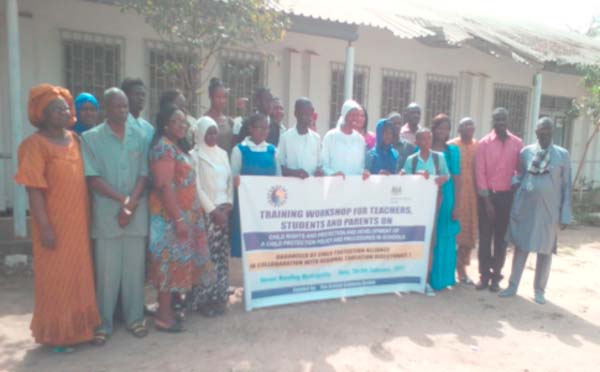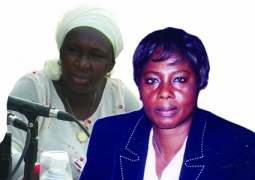
The
Child Protection Alliance (CPA) yesterday called for a child protection policy
in schools, at the education stakeholders training session held at the Regional
Education Directorate in Kanifing.
The
three-day training activity was orgainised for education stakeholders on the
development of a child protection policy and procedures and on child rights and
protection.
The
participants were teachers, parents and students drawn from five schools, and
the workshop was funded by the British Embassy.
Lamin
K. Saidy, project coordinator of British Embassy Bilateral Fund and CPA Youth
Coordinator, said the child protection policies and reporting guidelines place
an obligation on the school authorities to fully protect children, train staff
on the policy and ensure its effective implementation.
Ultimately, he added, schools would become safe
havens for children.
“Advocacy will be done within the Ministry of
basic and secondary education to oblige all schools to have in place a child
protection policy, with an active popularisation and the existence of a
non-threatening reporting procedure, which will reduce the prevalence of sexual
abuse and harassment within the school settings.
“The
programme is one that will engage teachers, students and school management
committees (SMCs) to understand the basic concepts of child rights and child
protection. It is important because we know the realities on the ground, and we
will be engaging you and discussing with you what child rights means from your
perspective to the conventional principles laid down, when it comes to the
interpretation of what child rights means.”
Saidy
added: “We will also be clearing some misconceptions in relation to child
rights and protection in this country. We will also be exposing you to some of
the child protection issues in The Gambia and within the school settings, as
well as the communities.”
They
hope that after the completion of the project, it would contribute to the
existence of child protection systems within educational settings, which would
provide a safety net and a protective environment for all children in schools,
he continued.
Claudiana
A. Cole, Regional Educational Director, said it is a training session, but as
it was participatory, that being the case, they would call it a discussion or a
bantaba.
It
is a very important discussion, she added, because it is one that is going to
facilitate the development of a policy on child protection, and the procedures
that would have to be put in place and be followed.
She
added that it was very important for all the stakeholders responsible for child
protection, and that they could not talk about child protection in the absence
of the parent. Parents are the most important, because they are the custodian
of the children, she continued.
They
could not also talk about child protection in the absence of the teachers,
because from the first home where the parents are responsible for the children,
they go to the second home, which is the school.
Kaddijatou
Jallow, CPA programme officer, said CPA is a child rights coalition with about
30 member organisations, which are child-led organisations that work with
children and for children.
“When
we talk about child rights we are looking at the universal right that each and
every one of us is entitled to. We have rights as parents, and they also have
rights as children. In child rights activism, we have four guiding principles
that we work on and apply on our day-to-day activities.
“We
have the principles of non-discrimination wherein parents, governments and
stakeholders, who should discriminate any child based on their religion, colour,
parent’s nationality, and tribe.
“The
other one is respecting the needs of the child, pursuing their best interest
and protection of their life, survival and development,” she added.



